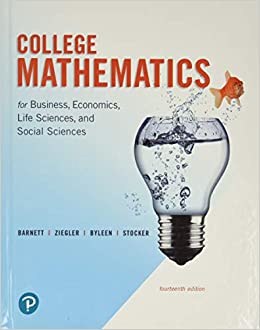Question
1. An investor can design a risky portfolio based on two stocks, A and B. Stock A has an expected return of 25% and a
1. An investor can design a risky portfolio based on two stocks, A and B. Stock A has an expected return of 25% and a standard deviation of return of 10%. Stock B has an expected return of 11% and a standard deviation of return of 10%.The correlation coefficient between the returns of A and B is -0.5. The risk-free rate of return is 5%. The proportion of the optimal risky portfolio that should be invested in stock A is _________. Note: Express your answers in strictly numerical terms. For example, if the answer is 5%, write 0.05"
2. An investor can design a risky portfolio based on two stocks, A and B. Stock A has an expected return of 25% and a standard deviation of return of 10%. Stock B has an expected return of 11% and a standard deviation of return of 10%.The correlation coefficient between the returns of A and B is -0.5. The risk-free rate of return is 5%. The expected return on the optimal risky portfolio is _________. Note: Express your answers in strictly numerical terms. For example, if the answer is 5%, write 0.05"
3. An investor can design a risky portfolio based on two stocks, A and B. Stock A has an expected return of 25% and a standard deviation of return of 10%. Stock B has an expected return of 11% and a standard deviation of return of 10%.The correlation coefficient between the returns of A and B is -0.5. The risk-free rate of return is 5%. The standard deviation of return on the optimal risky portfolio is _________. Note: Express your answers in strictly numerical terms. For example, if the answer is 5%, write 0.05"
Step by Step Solution
There are 3 Steps involved in it
Step: 1

Get Instant Access to Expert-Tailored Solutions
See step-by-step solutions with expert insights and AI powered tools for academic success
Step: 2

Step: 3

Ace Your Homework with AI
Get the answers you need in no time with our AI-driven, step-by-step assistance
Get Started


